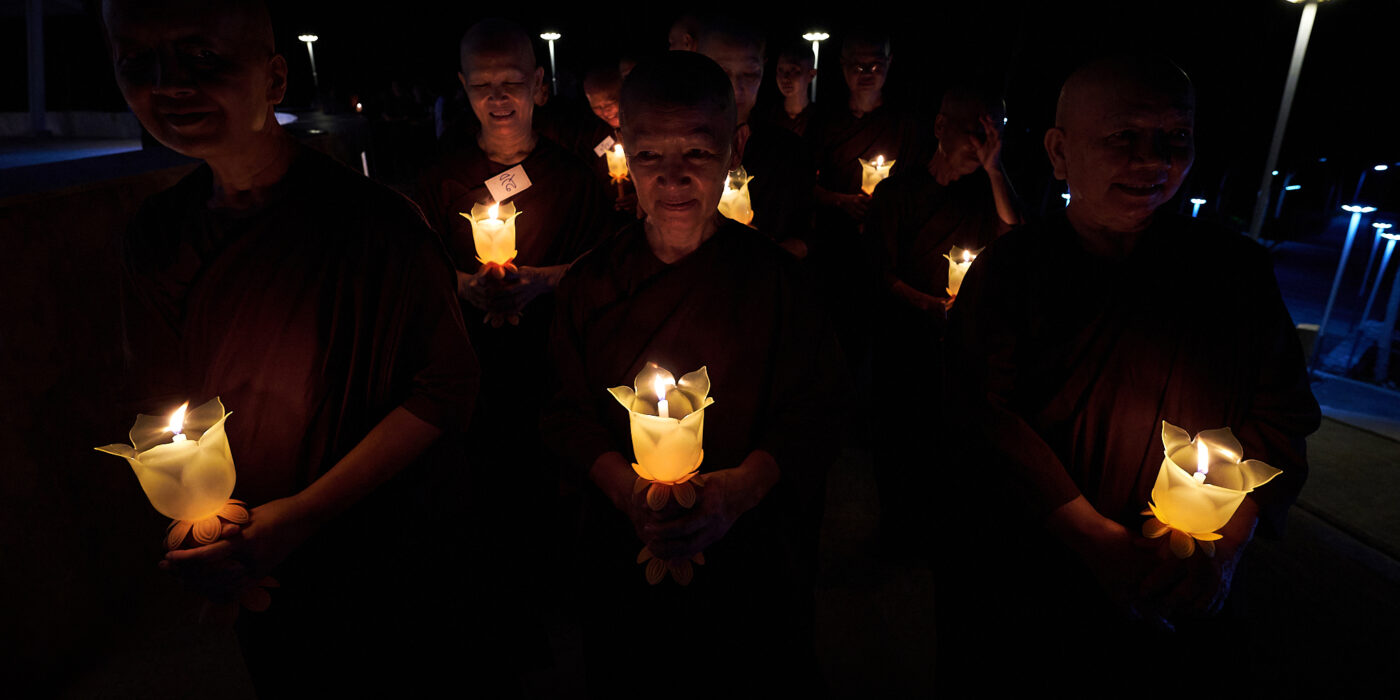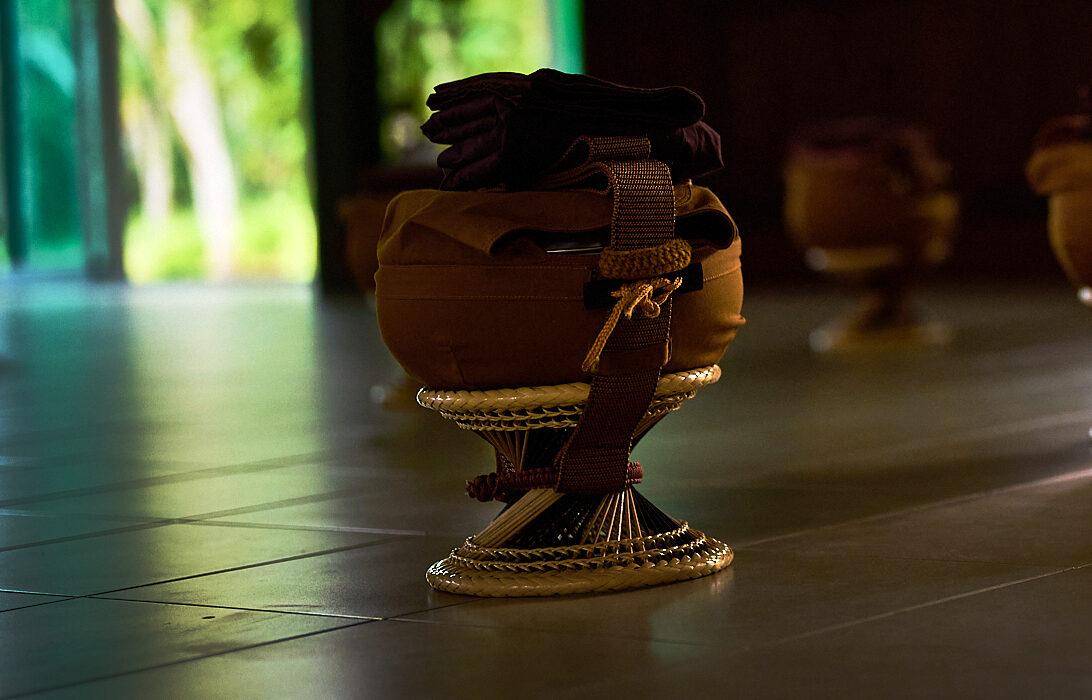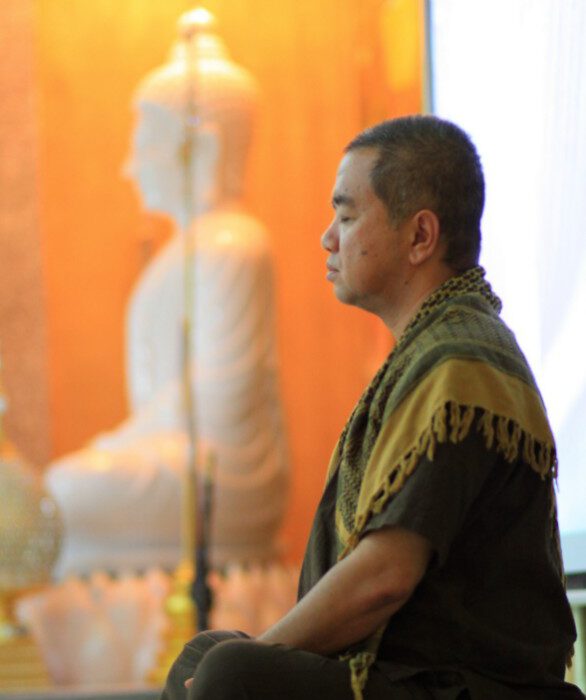I have the right. He did it to my family.
If you were a father, mother, brother or sister of someone who came to ask for their daughter or family member to go in marriage, and then they became a monk, leaving your daughter or family member who they came to ask for to marry to be alone, lonely and sad like Queen Phimpa, would you be angry? Would you go and scold her? You might hold a grudge and not cremate her. Or if you met her again, you would have to go and scold her or find a way to harass her to make yourself satisfied by what you did to my lover. You feel that you are justified in doing that because that person did it to “my family”. Let’s look at the truth that we think we know. Are you sure that “we” have the right? During the time of the Buddha, Suppabuddha, who was the father of Phra Thevadat and Phra Nang Yasodhara Phimpa, the wife of Prince Siddhattha, when he knew that Phra Thevadat was swallowed up by the earth because he wanted to destroy the Buddha, instead of being aware of his sins and merits, he became angry and resentful. He was also angry at Prince Siddhattha for abandoning his daughter to become a monk, so he led his ministers and courtiers to sit and drink liquor, blocking the Buddha’s way to preach to the people. This prevented the Buddha from walking because there was only one way out. He had to go without food for one day. When Ananda asked Suppa Buddha about his fault for doing so, the Buddha, who knew by his intuition, said, “Ananda, after seven days, Suppa Buddha will follow Devadatta to hell.” When Suppa Buddha learned of the Buddha’s words, he went up to the seventh floor of the castle and ordered the gatekeepers to prevent him from leaving the castle for seven days. Suppa Buddha stayed in the seventh floor of the castle until the seventh day when he heard the sound of his favorite glass horse neighing. Worried about the horse, Suppa Buddha ran down. The gatekeepers thought that the seven days had passed as prescribed, so no one prevented them. When Suppa Buddha stepped out of the castle, As soon as his foot stepped on the ground, the ground opened up, sucking Suppabuddha into the deep hell as the Buddha had said. If Suppabuddha thought correctly as most people saw this as righteous, such as I could do it to him because he did it to my family, and we still don’t understand how Suppabuddha was wrong because he did it for his family, that shows that we ourselves don’t understand merit, demerit, and sakkayaditthi, wrong views of the self, person, us, them. Or do we just think that it’s wrong because Suppabuddha did it to the Buddha, because he is a person with great merit, obstructing him who is about to save beings is a heavy karma? Yes, thinking like that is definitely not wrong, but it still won’t reach the root of the action. But the starting point when Suppabuddha did this, did it start from the feelings that were written down at the beginning, right? That’s why we started to do these things. If we were in the same situation, we might not think or act any differently, because we ourselves are in the fabrication of our thoughts. However, the person we did it to is not the Buddha. That doesn’t mean it won’t have an effect, but the effect will be less severe, from our own evil and resentful minds. Does that mean we won’t be able to do anything for our family? Of course, because all the karma comes from our own hatred and evil deeds. And those evil actions have even more severe consequences because they are done to people who are the world’s field of merit. That is why they result in heavy karma. But don’t forget that we thought that Her Majesty did not deserve to be abandoned like this, in the end Her Majesty Queen Phimpha attained enlightenment and became an arahant after Prince Siddhattha became a monk. Because of misunderstanding, people never stop creating karma. And if we do things with the same feeling as Suppabuddha, believe me, there will always be an inner voice trying to find a reason to protect ourselves in what we will do or have done. That may make us feel that we are doing the right thing, but the truth is not dependent on anyone’s beliefs or feelings. So how can right view or right opinion arise? How can we understand these things according to the truth? Let’s practice Dhamma… listen to Dhamma. Don’t just think about it. 2013-08-30




